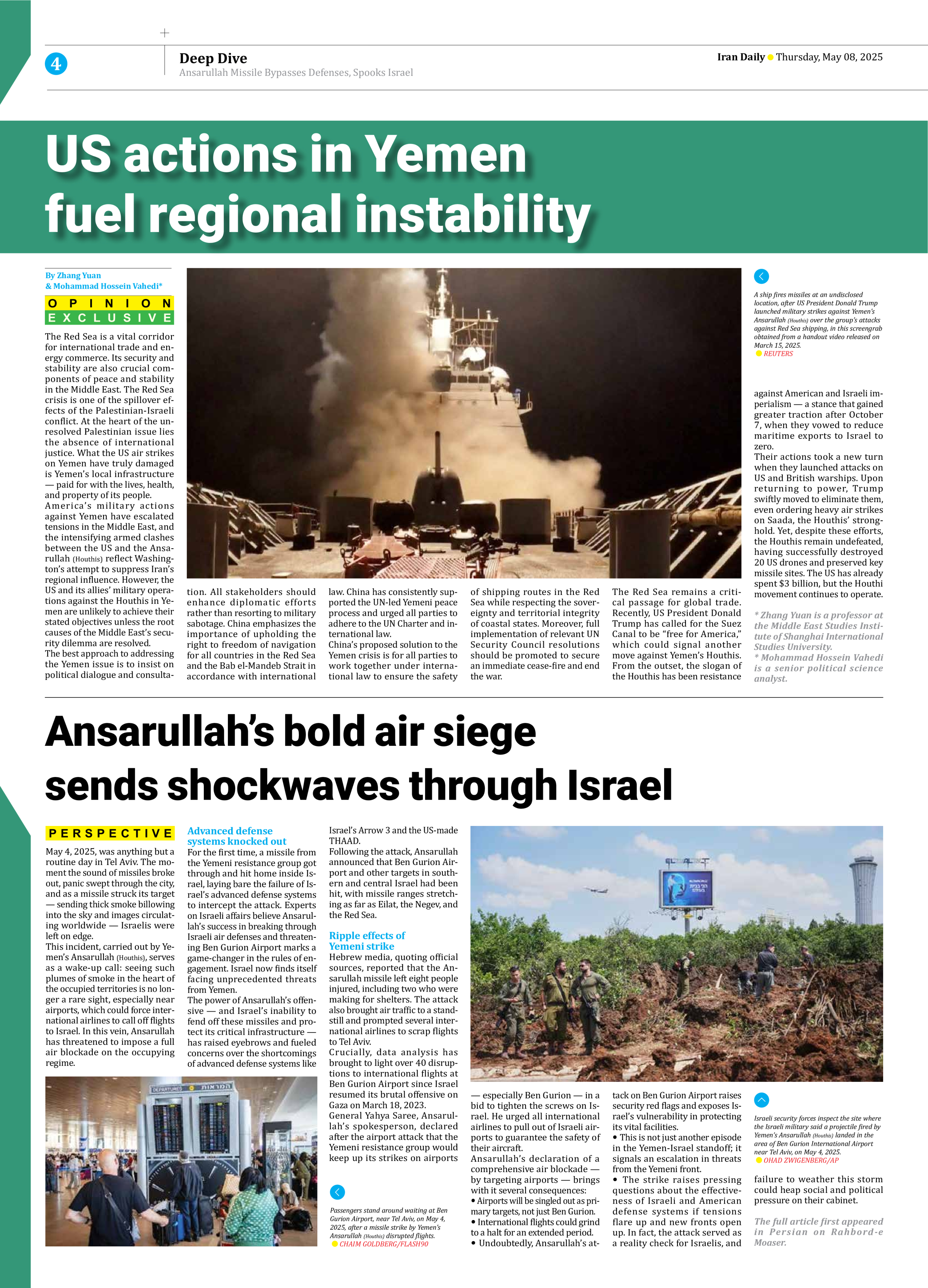
Ansarullah’s bold air siege sends shockwaves through Israel
May 4, 2025, was anything but a routine day in Tel Aviv. The moment the sound of missiles broke out, panic swept through the city, and as a missile struck its target — sending thick smoke billowing into the sky and images circulating worldwide — Israelis were left on edge.
This incident, carried out by Yemen’s Ansarullah (Houthis), serves as a wake-up call: seeing such plumes of smoke in the heart of the occupied territories is no longer a rare sight, especially near airports, which could force international airlines to call off flights to Israel. In this vein, Ansarullah has threatened to impose a full air blockade on the occupying regime.
Advanced defense
systems knocked out
For the first time, a missile from the Yemeni resistance group got through and hit home inside Israel, laying bare the failure of Israel’s advanced defense systems to intercept the attack. Experts on Israeli affairs believe Ansarullah’s success in breaking through Israeli air defenses and threatening Ben Gurion Airport marks a game-changer in the rules of engagement. Israel now finds itself facing unprecedented threats from Yemen.
The power of Ansarullah’s offensive — and Israel’s inability to fend off these missiles and protect its critical infrastructure — has raised eyebrows and fueled concerns over the shortcomings of advanced defense systems like Israel’s Arrow 3 and the US-made THAAD.
Following the attack, Ansarullah announced that Ben Gurion Airport and other targets in southern and central Israel had been hit, with missile ranges stretching as far as Eilat, the Negev, and the Red Sea.
Ripple effects of
Yemeni strike
Hebrew media, quoting official sources, reported that the Ansarullah missile left eight people injured, including two who were making for shelters. The attack also brought air traffic to a standstill and prompted several international airlines to scrap flights to Tel Aviv.
Crucially, data analysis has brought to light over 40 disruptions to international flights at Ben Gurion Airport since Israel resumed its brutal offensive on Gaza on March 18, 2023.
General Yahya Saree, Ansarullah’s spokesperson, declared after the airport attack that the Yemeni resistance group would keep up its strikes on airports — especially Ben Gurion — in a bid to tighten the screws on Israel. He urged all international airlines to pull out of Israeli airports to guarantee the safety of their aircraft.
Ansarullah’s declaration of a comprehensive air blockade — by targeting airports — brings with it several consequences:
• Airports will be singled out as primary targets, not just Ben Gurion.
• International flights could grind to a halt for an extended period.
• Undoubtedly, Ansarullah’s attack on Ben Gurion Airport raises security red flags and exposes Israel’s vulnerability in protecting its vital facilities.
• This is not just another episode in the Yemen-Israel standoff; it signals an escalation in threats from the Yemeni front.
• The strike raises pressing questions about the effectiveness of Israeli and American defense systems if tensions flare up and new fronts open up. In fact, the attack served as a reality check for Israelis, and failure to weather this storm could heap social and political pressure on their cabinet.
The full article first appeared in Persian on Rahbord-e
Moaser.







